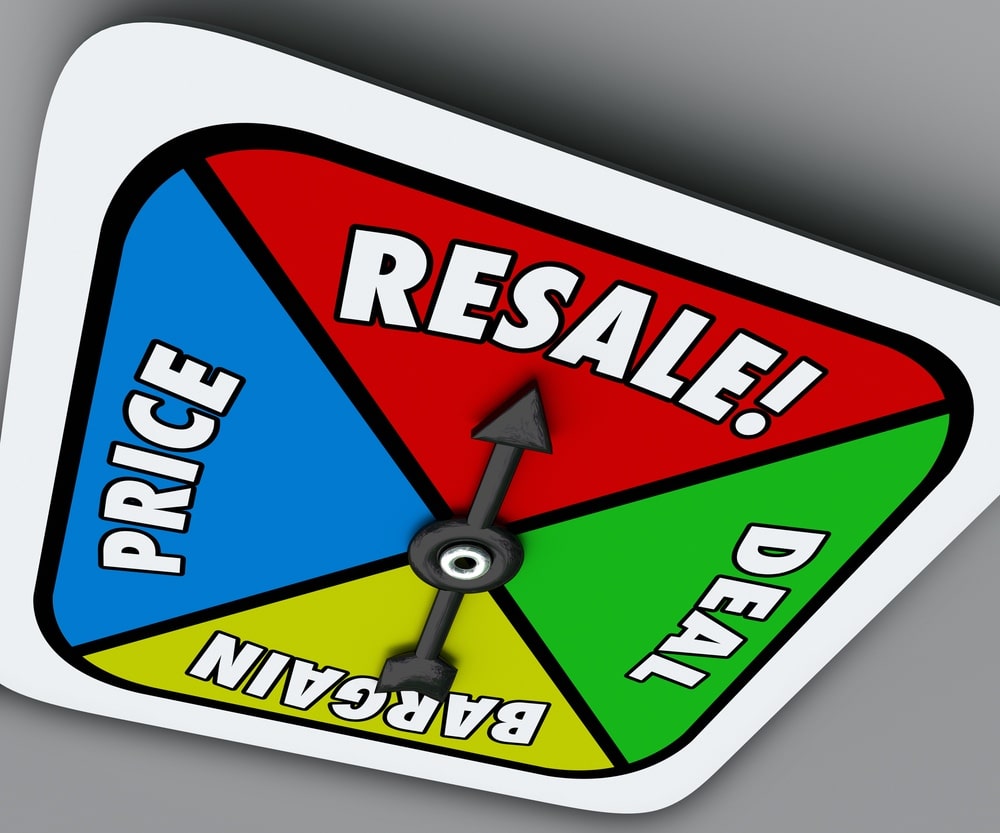The world of commerce and trade is saturated with terms that define its numerous facets and dimensions. Among these terminologies, ‘resell’ and ‘resale’ often come to the forefront, particularly in the domain of second-hand goods and services. While they might seem synonymous due to their related contexts, these words have distinct implications that delineate different aspects of the business of selling previously owned or purchased products.
Misunderstanding resell or resale, or interchanging these terms can potentially lead to confusion, miscommunication, and even misrepresentation of business activities. Consequently, this article aims to demystify these terms, delineating their meanings, appropriate contexts, and differences. We will take a deep dive into the nuances that set ‘resell’ and ‘resale’ apart, and comprehend their applications through practical examples.
By the end of this guide, you’ll have a clear understanding of when and how to use these terms correctly, enhancing your business communication skills and fostering greater clarity in your commercial endeavors.
A Deeper Look at Resell or Resale
Resell
The term ‘resell’ is a verb and primarily denotes the action of selling a product or service that one has previously purchased. This concept generally involves acquiring items or services with the intention of selling them again, often at a higher price. The ‘resell’ strategy is a cornerstone of many businesses, particularly those that buy products in bulk at wholesale prices and then sell them individually for a profit. The term underscores the seller’s action, focusing on the process of repurchasing and selling items.

Resale
In contrast, ‘resale’ is a noun that typically refers to the industry, market, or environment where the selling of previously owned or used goods happens. It represents the entire spectrum of businesses, physical marketplaces, and online platforms that cater to the buying and selling of used items. Unlike ‘resell’, ‘resale’ does not highlight the act of selling but instead emphasizes the commercial ecosystem wherein the transaction of used goods takes place.
When to Use Resell Or Resale
When speaking from the perspective of the seller about the specific act of selling an item, the term ‘resell’ is the better choice. This usage is especially appropriate when you purchase a product or service with the express intention of selling it again, usually for profit.
In contrast, ‘resale’ becomes the preferred term when discussing the industry, marketplace, or environment in which used items are sold. It provides an overarching view of the world of second-hand goods and services. If you are referring to the entire sector or industry where used clothing, vehicles, or any other items are sold, you are talking about the ‘resale’ market.
Delving Deeper into Resell: Five Exemplary Scenarios
- Wholesale Products: Businesses, especially retailers, routinely resell products they’ve purchased in bulk from manufacturers or wholesalers. For example, a boutique may buy a batch of designer bags from a brand at a discounted rate and then resell them in their store at a higher price, capitalizing on the price difference.
- Event Tickets: Often, people resell event tickets for highly sought-after events. They secure tickets for a popular concert or sports event early and resell them when the event is sold out or nearing the date, often at a significant markup.
- Real Estate: Real estate flipping is a perfect example of reselling. A real estate investor might purchase a rundown property, invest in renovations and improvements, and then resell it at a substantial profit.
- Online Retail: Online platforms such as eBay, Amazon, or Etsy are common places for reselling. Individuals might buy unique collectibles, vintage items, or discounted items and resell them on these platforms, leveraging the broad audience reach for maximum profit.
- Software and Digital Goods: Many businesses operate on a resell model in the digital space. They may purchase software licenses, eBooks, or digital products in bulk at discounted rates and then resell them to their customers, often adding value through support services or complementary products.

Exploring Resale: Five Industry Examples
- Thrift Stores: Thrift stores are a prime example of the resale industry. They acquire used goods, either through purchases or donations, and sell them in their shops to customers looking for affordable, unique, or vintage items.
- Used Car Dealerships: These businesses operate in the resale market by purchasing used cars, often restoring or repairing them, and then reselling them to consumers.
- Consignment Stores: Consignment stores operate a unique model in the resale industry. They sell goods on behalf of the original owners, who retain ownership until the item is sold. The shop gets a commission from the sale, aligning their interests with the sellers’.
- Online Resale Platforms: Online marketplaces like Poshmark, Depop, or ThredUP are reshaping the resale industry. They facilitate the resale of used or second-hand clothing, accessories, and other items, providing a platform for individuals to sell their items to a larger audience.
- Pawn Shops: Pawn shops operate squarely within the resale industry. They purchase used items from individuals in need of quick cash and then resell them, often after refurbishing or assessing their true market value.
Resell Or Resale: Conclusion
To summarize, the terms ‘resell’ and ‘resale’ hold unique implications in the commerce sphere, each with its relevance based on context. While ‘resell’ emphasizes the act of selling for profit, ‘resale’ underscores the marketplace of used goods. Understanding these distinctions can aid both sellers and buyers to better navigate the market, making informed decisions and communicating effectively.
Moreover, recognizing when and how to apply resell or resale terms can also assist in strategizing profitable business models. As we’ve seen through diverse examples, both reselling and resale offer significant opportunities for profit and sustainability, making them crucial components in the modern commerce landscape.
